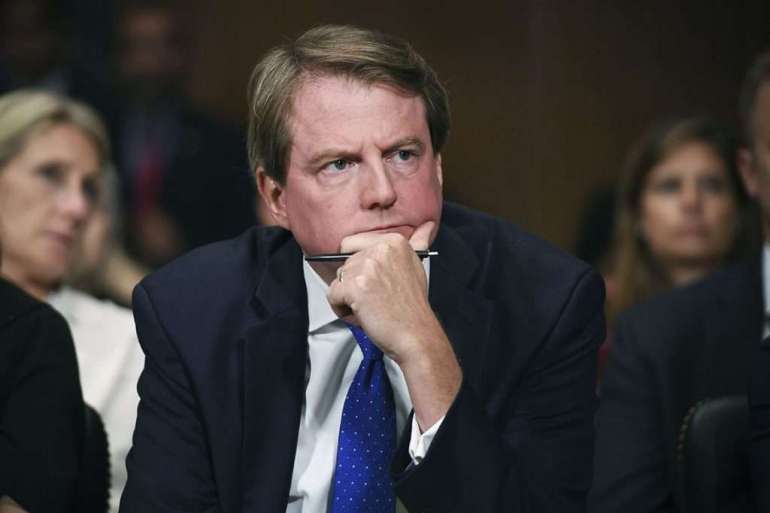Judges order 2-month delay in case to compel McGahn testimony to House

Indeed, the fact that the House has since impeached Trump twice — with the Senate acquitting him in both cases — makes the lingering battle over the McGahn subpoena feel like an afterthought. But for a time, the events the House wants to explore threatened to sink Trump’s presidency — in its first year.
Mueller’s probe found that Trump repeatedly encouraged McGahn to fire or stifle the investigation, and that he once asked McGahn to create a false record about his efforts. McGahn’s testimony on those episodes became some of the most explosive aspects of the special counsel’s final report. Notes from McGahn and his deputy also provided some of the most detailed insight into the panic and chaos that enveloped the West Wing as Mueller launched his probe.
The subpoena has a tangled history in the courts. The House issued it just days after the Justice Department released Mueller’s redacted report. But McGahn refused to appear a month later, and the House Judiciary Committee sued to force him to appear. In response, the Trump administration claimed that close aides to the president were “absolutely immune” from testifying.
A District Court judge, Obama appointee Ketanji Brown Jackson, rejected those arguments in November 2019. Last February, a D.C. Circuit panel ruled, 2-1, that the judiciary should not consider subpoena disputes between the executive branch and Congress, potentially undercutting Congress’ power to investigate wrongdoing. The full bench of the appeals court agreed to take the case and voted last August, 7-2, to reverse that decision.
However, that ruling left open some potential arguments against the subpoena, and a D.C. Circuit panel again blocked enforcement. The decision, again 2-1, said the House doesn’t have a statute that specifically allows courts to enforce demands for testimony or documents. That is the question the full bench of the D.C. Circuit was set to take up on Tuesday — until the court issued the latest postponement.
President Joe Biden’s victory changed some of the political dynamics at work, seemingly increasing the chances of an out of court resolution with the Democratic-controlled House.
On Wednesday, Justice Department lawyers asked the D.C. Circuit to postpone next week’s arguments, citing the prospects for talks that might resolve the case.
But the House urged the appeals court to reject the proposed delay, arguing that it would simply serve as an extension of Trump’s drawn-out effort to stall resolution of the case. The Justice Department would likely have to consult with the former president about the case, prolonging an already protracted and failed effort to reach agreement about the parameters of McGahn’s testimony.
While the en banc sitting normally involves all 11 of the D.C. Circuit’s active judges, the order issued by the court on Thursday indicates that only seven judges intend to take part in the next arguments on the case, if they proceed.
Among those bowing out are Judge Merrick Garland, a Clinton appointee who has been nominated by Biden to become attorney general, and Judges Greg Katsas and Neomi Rao, Trump appointees who have recused themselves from some or all cases related to Mueller’s investigation. The order Thursday also indicated that Judge Karen Henderson would not take part in the delayed arguments. The reason for her decision is unclear.